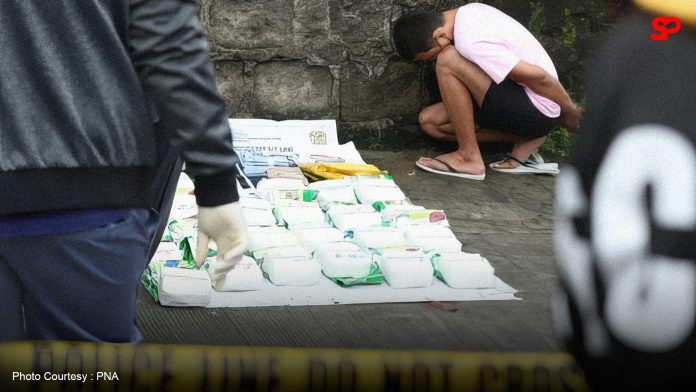MANILA – More than 29,000 out of the country’s 42,002 barangays (villages) have been declared drug-cleared since the start of the Marcos administration, the Philippine Drug Enforcement Agency (PDEA) said Thursday.
In a statement, PDEA said 29,390 or 69.97 percent of barangays previously classified as drug-affected have been declared drug-cleared by the Regional Oversight Committee on Barangay Drug Clearing (ROCBDC).
PDEA said these barangays underwent the Barangay Drug Clearing Program (BDCP) and were declared drug-cleared by the ROCBDC after careful deliberation and validation.
A barangay is declared drug-cleared upon satisfying the parameters outlined in Dangerous Drugs Board (DDB) Regulation 4 Series of 2021, otherwise known as “Sustaining the Implementation of BDCP and Repealing for Such Purpose Board Regulation No. 3 Series of 2017.”
PDEA, through the BDCP, aims to reduce the country’s drug affectation by making illegal drugs inaccessible to people, as well as lure people away from narcotics through supply reduction strategies.
A culture of cooperation, respect for human dignity, and a whole-of-nation approach was also adopted to minimize the impact of the drug problem, according to the anti-drug agency.
Chaired by the PDEA regional director, the ROCBDC consists of regional representatives of the Department of the Interior and Local Government, Philippine National Police, Department of Health, and local government units.
On the other hand, 6,113 barangays nationwide or 14.55 percent remain drug-affected, meaning these barangays have reported and validated presence of persons who use drugs (PWUDs), pushers, drug den maintainers, coddlers, protectors, financiers, cultivators, manufacturers, and others.
Out of all the barangays nationwide, 6,179 or 14.71 percent are drug-free or barangays that have been vetted and confirmed by the ROCBDC as drug-unaffected, while 320 barangays or 0.76 percent are drug-unaffected or barangays that have never been plagued or beset by any illegal drug activities.
PDEA said it aspires to attain drug resistant and self-policing communities by 2030. (PNA)

